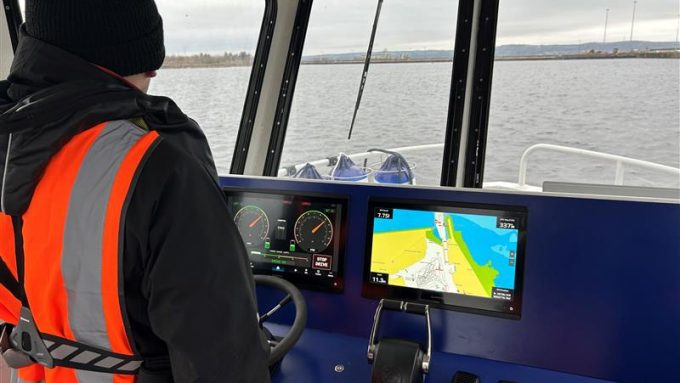
Innovators urged to demonstrate true value of their technologies

Innovators looking to secure public sector contracts face challenges if clients are averse to accepting risk, a panel discussion in Leeds heard. But efforts are being made to bring suppliers and spenders closer together to discuss new ideas.
The discussion on 23 October focused on strategies to commercialise innovation and involved several start-up companies and an academic supported by the Transport Research & Innovation Grants (TRIG) programme, which is funded by the Department for Transport and delivered by Connected Places Catapult.
Panel chair Rikesh Shah from the Catapult’s Innovation Procurement Empowerment Centre asked guests to describe the barriers that prevent more start-up companies from landing public sector contracts.
“Structures within authorities are inherently biased against anything new or risky, and for start-up companies that can be hard to deal with – as by nature there is risk in what we do,”Luke Gavin, the Co-founder of electric car leasing company Elmo
“There can be a lot of good intent from people within innovation departments, but also a lack of joined up thinking in authorities when it comes to public sector procurement,” he added.
Hamish Geddes, Co-founder of software developer Lenz Labs said that ‘visibility’ was a challenge for many small companies: getting clients to see the potential of new technology on offer.
Programmes such as TRIG offer a greater chance to secure a spot on a local authority framework, he added, but “at that point you need to jump into the commercial landscape and have commercial conversations. It can be a lot of work and take a lot of time.”
Transport technology scale-up VivaCity’s Head of Growth & Partnerships, Flora McFarlane said a lack of standardised processes within large organisations procuring services presented a big challenge to small firms. She added that one significant learning in the years following its TRIG funding was the need to understand fully the requirements of end users at all times.
“It is not always the heads of innovation or service owners you should focus on, but those using the tools or working with the product you provide,” she advised. Small technology companies need to “understand the pain” of end users and know how their solutions can solve problems.
University of Leeds’ Ventures Manager, Luke Watson told the event: “The biggest issue we currently face is the challenging economic market. Venture capitalists are asking for more advanced commercial validation points for less money than they did previously.
“Securing funding is challenging for nascent technologies; without validation it is difficult to get investment. Specifically in the field of transport, one spin-out company from the university had a validated technology, and it took them five years to get a contract.”

Creating chances to try new ideas
Department for Transport’s SME Lead, Robert Vaughan acknowledged that a “lack of visibility” around the pipeline of future opportunities “and too many portals” of information can be problematic for smaller companies. To address the situation, the Department has started to host several face-to-face events around the country.
Moving forwards, Robert wants to ensure greater “transparency across the DfT family”.
“I’m looking at having everything in one place on our website, including policy and innovation opportunities, with links to the pipelines of work so SMEs only have to go to one place to make contact.”
He added that the Procurement Bill – currently making its way through Parliament – should help further address the issue of complex procurement.
Leeds City Council’s Transport Strategy Manager, Paul Foster said local authorities sometimes suffer from a “lack of understanding of products that can help deliver social and transport benefits, and economic growth”.
The answer lies in better connecting authorities with those delivering innovative products and services that meet client objectives, he said. Creating an ‘active market’ where new ideas are showcased could be a start.
Paul added that local authorities too often look to procure “an all-in-one solution for a multi-million pound scheme” from one large supplier because they are not sufficiently resourced to procure individual elements.
Value of the TRIG programme
Speakers were asked for their thoughts on being part of recent TRIG programmes. “The funding gave us space to speak to the market; something which is often overlooked in other accelerator programmes,” said Hamish Geddes. “It had a huge impact and gave us complete freedom to fail multiple times, and ask people if what we were thinking was a problem for them.”
Flora McFarlane added: “It gave us the freedom to conduct research and blue sky thinking, and helped keep the lights on as a business. It was also valuable to learn how the DfT works, and who to talk to around funding.”
* The Innovation Procurement Empowerment Centre is providing a fully-funded resource to help local authorities who are planning to start an innovation challenge in April. Find out more here.





